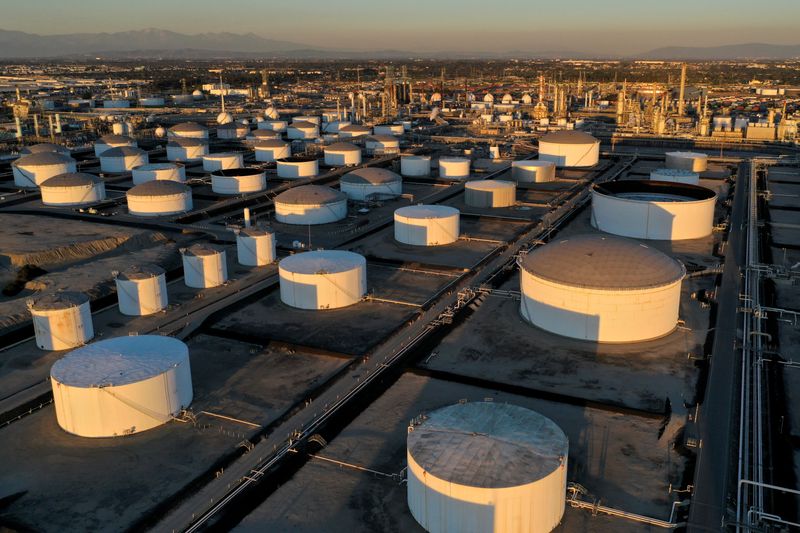By Shariq Khan
NEW YORK (Reuters) -Oil prices settled about $3 per barrel higher on Friday for a second straight week of gains after Moscow said it could cut crude output in response to the G7 price cap on Russian exports.
Brent crude settled at $83.92, up by $2.94 or 3.6%, while U.S. West Texas Intermediate (WTI) crude settled at $79.56 a barrel, up $2.07, or 2.7%. Both benchmarks recorded their biggest weekly gains since October.
Russia may cut oil output by 5% to 7% in early 2023 as it responds to price caps, the RIA news agency cited Deputy Prime Minister Alexander Novak as saying on Friday.
Russia's Baltic oil exports could fall by 20% in December from the previous month after the European Union and G7 nations imposed sanctions and a price cap on Russian crude from Dec. 5, according to traders and Reuters calculations.
"The potential cut from Russia could be giving the bulls more fuel," said Eli Tesfaye, senior market strategist at RJO Futures. "If global demand continues at current pace, that cut could have a significant impact and we may stay in the $80s range."
Both crude oil demand and output could slump over the next few days due to shut-ins from a massive winter storm that cascaded across a broad swath of the United States. Several of the largest U.S. refineries shut down due to the extreme cold while output shut in Texas and North Dakota.
U.S. gasoline and ultra-low-sulfur diesel futures both rose more than 5% on anticipated refining production cuts and a surge in heating oil demand.

Swiss bank UBS expects prices could move back above $100 per barrel next year on Russian output cuts and easing of COVID-related restrictions in China, analyst Giovanni Staunovo said.
"The road for higher prices will however stay bumpy," he said.